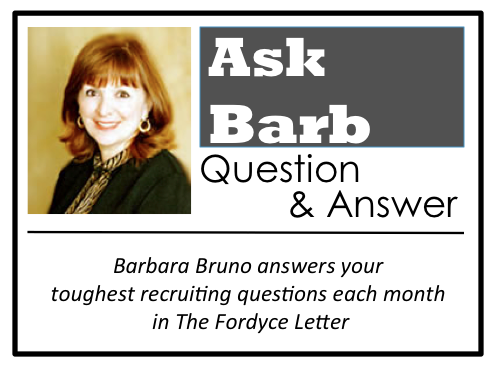Dear Barb:
Is it me or are people just giving out too much information. I can’t believe what some of my candidates have shared on recent interviews that cause them to be screened out. How do you tell a candidate to keep their personal life out of the interview? How do you teach candidates to only talk about appropriate topics? How can we teach these candidates to have a filter?
We’ve had several candidates eliminated from consideration and have had some of our contractors fired before the completion of the contract for their inappropriate discussions at work. What ever happened to business acumen? Some of my recruiters also share too much during interviews. I’m a very private person and I thought it was me until we’ve had so many nightmares with our candidates and clients. I don’t know how to stop this; have any ideas?
Michael C.
Augusta, GA
Dear Michael:
I’m in 100% agreement with you that there is just TMI (Too Much Information) everywhere. This includes social media sites, email, texts, and conversations. Your team should follow a structured interview process with set questions. They want to show their personality and get to know their candidates, but they need to limit what they reveal about themselves. We need to teach the members of our sales team that it’s not about us or them, it’s all about the clients and candidates.
When it comes to our candidates, we can alleviate many of these problems during our prep process. During the prep, our recruiters should not talk more than 30% of the time. The prep is role playing which involves us asking questions and listening to the answers provided by our candidates. Their tendency to provide TMI (Too Much Information) will surface and it is then that you must coach them to stick to the questions being asked. Candidates will listen to you if they see how your advice will benefit them.
If they say something inappropriate, change places with them. You are now providing the answer and they are the hiring authority. When you repeat their answer, they will hear what needs to be changed and will adjust their answer. Give examples of candidates who have been eliminated from the interview process or fired for inappropriate conversations.
Follow this advice and you will enjoy more hires and fills and less fall-offs.
Barbara J. Bruno, CPC, CTS
